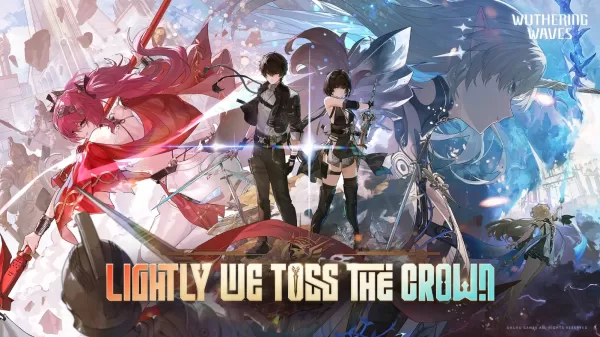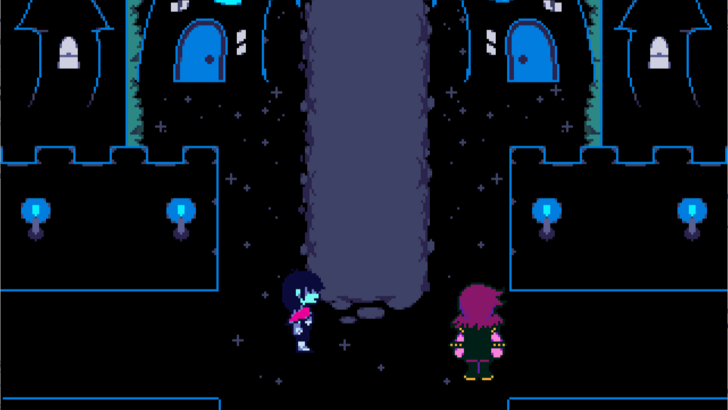Turn-based games have been a staple topic in role-playing game discussions and forums, often sparking debates about their place alongside more action-oriented systems. The recent release of Clair Obscur: Expedition 33 has reignited these conversations, especially regarding the future direction of genre giants like Final Fantasy.
Launched last week, Clair Obscur: Expedition 33 has been hailed as an exceptional RPG by IGN and numerous other reviewers. The game proudly showcases its inspirations, featuring a turn order system, Pictos to equip and master, zoned-out "dungeons" to explore, and an overworld map. In an interview with RPGsite, producer Francois Meurisse emphasized that the game was designed as a turn-based RPG from the outset, drawing specific inspiration from Final Fantasy VIII, IX, and X. Additionally, it incorporates elements from Sekiro: Shadows Die Twice and Mario & Luigi, blending quick-time events for attacks and parrying/dodging for defense.
This unique blend results in a turn-based game that maintains the strategic depth of traditional RPGs while introducing action-oriented elements during combat. This innovative approach has sparked significant discourse, particularly on social media, where fans have used Clair Obscur's success to argue against the shift away from turn-based mechanics in series like Final Fantasy.
Naoki Yoshida, during the media tour for Final Fantasy XVI, discussed the move towards more action-based mechanics in RPGs. He acknowledged the appeal of command and turn-based systems but noted a growing sentiment among younger audiences who find them less engaging. This perspective is reflected in recent Final Fantasy titles like XV, XVI, and the VII remake series, which have embraced more action-driven gameplay, attracting both praise and criticism.
The success of Clair Obscur: Expedition 33 has led some to feel vindicated in their preference for turn-based systems, especially given its clear homage to classic RPGs. However, the situation is more nuanced than a simple call for Final Fantasy to revert to its roots. Square Enix has not abandoned turn-based games entirely, as evidenced by titles like Octopath Traveler 2, SaGa Emerald Beyond, and the upcoming Bravely Default remaster for Switch 2.
While some might suggest that Final Fantasy should adopt Clair Obscur's approach, it's important to recognize that each series has its own unique aesthetic and identity. Reducing Clair Obscur to a mere imitation of Final Fantasy overlooks its distinct contributions and the elements that have made Final Fantasy a beloved series.
Historical debates about RPGs, such as those surrounding Lost Odyssey and the relative merits of Final Fantasy VII versus VI, highlight the ongoing nature of these discussions. Sales considerations also play a role, as Yoshida mentioned in his comments about Final Fantasy XVI's direction, indicating that while he values command system RPGs, market expectations influenced the game's development.
Clair Obscur: Expedition 33 has achieved remarkable success, selling 1 million copies in just three days. This is a significant achievement, though it's worth noting that Square Enix's expectations for Final Fantasy are typically higher. The success of other turn-based RPGs like Baldur's Gate 3 and Metaphor: ReFantazio further demonstrates that there is still a strong market for these games.
Ultimately, Clair Obscur's success is a testament to the team's vision and execution. It represents a return to the mid-budget RPG, alongside titles like Visions of Mana and Ruined King. Whether it will reach the heights of games like Baldur's Gate 3 or Disco Elysium remains to be seen, but its strong start is undeniable.
As for whether Clair Obscur's success signals a necessary shift for Final Fantasy, it's less clear. Recent entries like Final Fantasy XVI and FF7 Rebirth have faced challenges meeting profit expectations, influenced by broader shifts in the gaming industry and the high costs of developing major franchise titles.
The key takeaway is the importance of authenticity in game development. Projects that merely imitate others often struggle to stand out. Clair Obscur succeeds not just because of its inspirations but due to its innovative combat systems, compelling soundtrack, and thoughtful world-building. As Larian CEO Swen Vincke noted about Baldur's Gate 3, success comes from creating a game that the team is passionate about, rather than rehashing old debates.








![Taffy Tales [v1.07.3a]](https://imgs.xfsxw.com/uploads/32/1719554710667e529623764.jpg)











